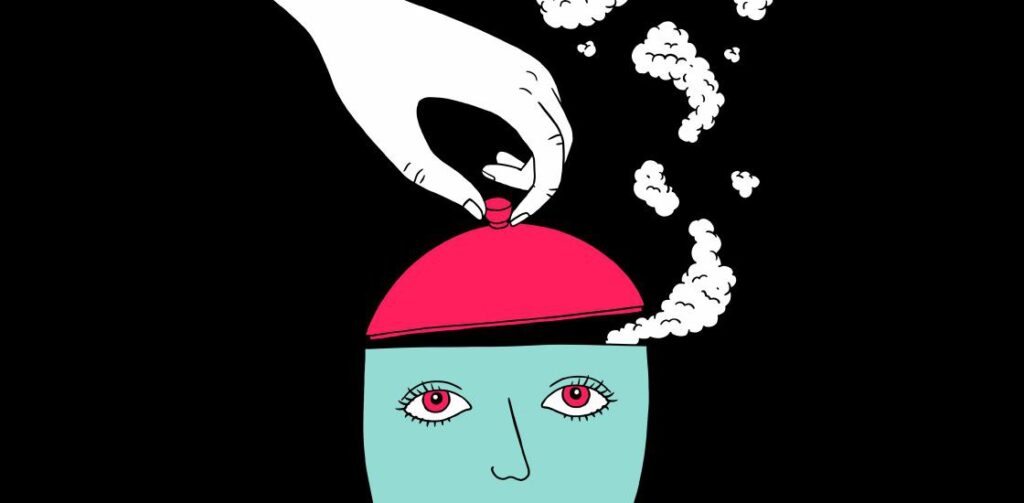The Unseen Consequences of Autistic Burnout: A Growing Concern for the Neurodiverse Community
It is a state of physical, emotional, and mental exhaustion that people with ASD may go through as a result of chronic stress, overstimulation, and also lack of good enough support and resources. This debilitating condition oftentimes is noticed and remains misdiagnosed, leaving the ASD individuals in silence, suffering by themselves.
Burnout originally came from Herbert Freudenberger in the 1970s, describing physical and emotional exhaustion brought about by high levels of occupational stress. Since then, it has become apparent that autistic burnout is a distinct entity, disproportionately affecting ASD individuals at greater frequency and severity.
The symptoms of autistic burnout can vary and may include physical complaints like tiredness, headaches, gastrointestinal disorders; emotional symptoms, such as anxiety, depression, irritability; and cognitive symptoms, such as memory lapses, difficulties with concentration, and decreased problem-solving ability. In extreme conditions, autistic burnout may cause full-blown collapse in daily functioning and overall well-being for the individual.
Several factors cause autistic burnout. The main ones are lack of social understanding and support from family members, friends, and healthcare providers. Most of the ASD clients complain of loneliness and misunderstanding, which further aggravates the stress and anxiety.
Another, more decided factor can be the impossibility of adapting to changed circumstances or routines. Individuals with ASD generally rely on routine and structure in order to feel comfortable and secure; sudden changes can be overwhelming and stressful.
Conforming to societal expectations and peer pressure also contribute to autistic burnout. For instance, people with ASD may be forced to camouflage their genuine self around typically wired individuals, which exhausts and upsets them.
Effects of Autistic Burnout
The consequences of autistic burnout may be all-encompassing and disastrous. Unless treated or given proper care, the effects that may be manifested by persons on the autism spectrum could include:
- Greater mental health concerns: If autistic burnout is left untreated, it will add to increased anxiety, depression, and other related issues in mental health.
- Diminished quality of life: Autistic burnout may powerfully influence daily functioning, relationships, and overall well-being of the affected individual.
- Social withdrawal: They retreat into their shell due to tiredness and frustration and stay out of social circles.
- Poor physical health: It is also likely to result in chronic stress and fatigue that further lead to poor physical health consequences such as sleep disorders, gastrointestinal problems, and many related health conditions.
Breaking the Silence: Supporting Individuals with ASD through Autistic Burnout
The existence of autistic burnout needs to be acknowledged, and an attempt should be made to accommodate individuals with ASD in a much more considerate manner. The support mechanism will involve:
- Increased awareness: As this is a process of educating health professionals, relatives, and friends about autistic burnout, increased awareness will de-stigmatize and increase empathy in people’s perceptions of autistic individuals.
- Stronger support networks: Support structures put in place, which can be used to meet the needs of the ASD individual, can create strong understanding and bonding that could reduce feelings of loneliness and enhance their quality of life.
- Utilizing flexible accommodations: The use of flexible accommodations like a sensory-friendly environment, consistent routines, and others may reduce stress and anxiety felt by these individuals.
- Access to resources: Availability of and access to such resources as therapy, support groups, and online forums can help individuals with ASD feel more connected, rather than in isolation.
In a nutshell, autistic burnout is one of the major concerns that should be heard by the world through understanding and support regarding the neurodiverse community. By the acknowledgment of the existence of autistic burnout and working toward making an inclusive environment, we might reduce the risk of this debilitating condition and enhance greater well-being for people with ASD.
References:
https://www.autism.org.uk/advice-and-guidance/professional-practice/autistic-burnout
https://www.ncbi.nlm.nih.gov/pmc/articles/PMC7313636/
https://en.wikipedia.org/wiki/Autistic_burnout
Websites:
Britmed Healthcare: https://britmedhealthcare.co.uk/
Nightingale Hospital: https://www.nightingalehospital.co.uk/
You can also book on Top Doctors UK Contact us on WhatsApp 08009708017
Top Doctors: https://www.topdoctors.co.uk/doctor/ahmed-el-missiry




